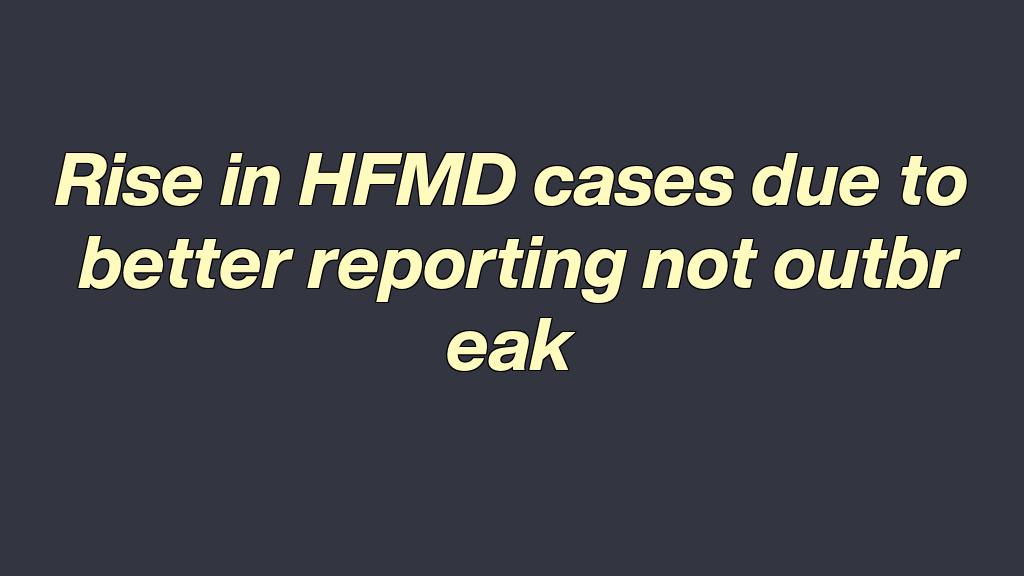THE Department of Health (DOH) on Monday said the recent spike in hand, foot, and mouth disease (HFMD) cases does not imply a dangerous outbreak but is a result of improved case reporting.
“We cannot call this an outbreak,” said DOH Assistant Secretary Albert Domingo, explaining that 94 percent of the logged cases are still considered “suspect” and are not yet laboratory-confirmed.
Rise in HFMD cases due to better reporting, not outbreak
As of Aug. 9, the latest DOH data showed HFMD cases reaching 37,368 — over seven times higher than the 5,081 cases during the same period last year.

Despite the increase, Domingo emphasized that HFMD is not fatal and usually resolves within 7 to 10 days.
But DOH urged the public to remain cautious, especially during the wet season when transmission of the viral infection is more likely., This news data comes from:http://jfu-yehi-kkx-ll.redcanaco.com
HFMD spreads through saliva, respiratory droplets, and contaminated surfaces.
Symptoms include fever, sore throat, rashes, and painful sores on the hands, feet, and inside the mouth.
In an earlier report, Health Secretary Ted Herbosa noted that the disease is highly contagious among children, because they spend more time indoors in the rainy season, making transmission easier.
Rise in HFMD cases due to better reporting, not outbreak
While there is no specific cure, supportive treatment such as hydration, rest, and fever reducers can help patients recover faster.
- AFP chief tells troops: Stop Chinese from entering PH ship marooned on WPS territory at all cost
- San Juan commemorates first revolution under Spanish rule in 129th Araw ng Pinaglabanan
- HFMD cases on the rise
- Eala kicks off US Open campaign, aims for breakthrough win in New York
- Marcos declares holidays for 2026
- 'Pink and green' protests call for a reset in Indonesia
- Taylor Swift, Travis Kelce engaged
- France seized by fears of new political crisis
- Palace suspends govt work, classes in several areas due to bad weather
- LPA over West PH Sea develops into tropical depression, now called ‘Jacinto’ -- Pagasa